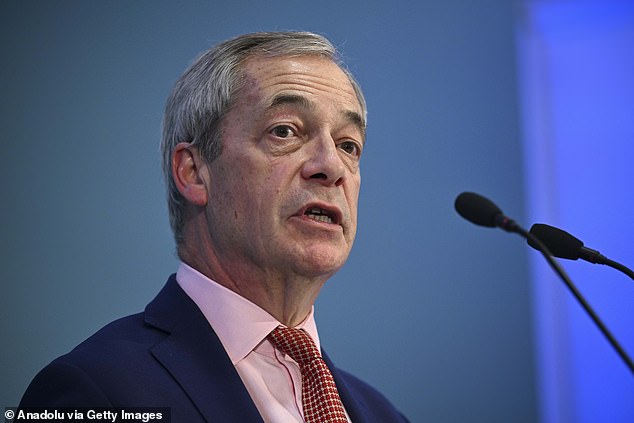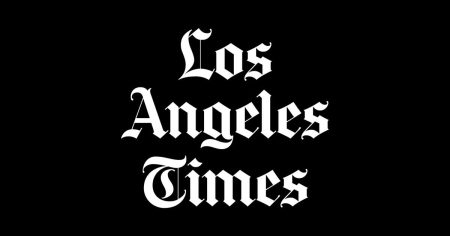In a dramatic twist in the evolving landscape of British politics, Nigel Farage, the leader of Reform UK, is reportedly open to collaborating with former Prime Minister Boris Johnson to prevent a Labour victory in the next general election. According to sources close to Farage, this potential alliance is being framed as a move “in the national interest,” as both factions seek to challenge the faltering government led by Sir Keir Starmer. With Labour’s support collapsing at an unprecedented rate following the last election, the possibility of a “mega party” uniting the right under a shared banner could prove unstoppable, based on current polling figures. However, this budding partnership is not without its challenges, as internal divisions and competing egos threaten to derail the effort before it even begins.
Key to this potential alliance is the understanding that both Farage and Johnson bring significant political capital to the table. Farage, as the leader of Reform UK, commands a personal approval rating of 32%, while his party currently stands at 24% in the polls. Johnson, though no longer in office, remains a dominant figure within the Conservative Party and is still viewed by many as a potential savior for the Tories. Allies of the two men recently met at the exclusive In and Out private members’ club in Mayfair to discuss the possibility of “uniting the right.” While these talks were informal and unauthorized by either leader, they signal a growing recognition that the fragmented right-wing vote must be consolidated if Labour is to be defeated.
The electoral math supports this strategy. A recent Electoral Calculus poll places Reform UK at 24%, with both Labour and the Conservatives tied at 23% each. If these numbers hold, the next election could result in a hung parliament, with Reform UK and the Conservatives collectively securing 353 seats compared to Labour’s 174. This scenario has led to speculation about the form such an alliance might take. Possibilities include a non-aggression pact, where the two parties agree not to field candidates against each other in key constituencies; a formal coalition, similar to the Liberal-SDP alliance of the 1980s; or even a full merger of the two parties. Whatever the structure, sources close to Farage suggest that he would demand significant concessions in exchange for his cooperation, including the abandonment of net-zero targets and the appointment of high-profile figures to key government roles, following the model set by former U.S. President Donald Trump.
Despite these ambitions, the path to a Farage-Johnson alliance is fraught with obstacles. For one, Kemi Badenoch, the current leader of the Conservative Party, has publicly ruled out any negotiations with Reform UK. Badenoch’s stance reflects the skepticism of many within the Tory establishment, who view Farage and his movement as a threat to the party’s traditional identity. Johnson himself has long believed that the Conservatives can only succeed by reasserting their unique philosophy and policies, rather than imitating those of Reform UK. His friends and allies insist that he would never defect from the party and that his “red line” remains his commitment to the Conservatives. However, they also acknowledge that the Brexit campaign of 2016—during which Johnson and Farage campaigned for the same cause, albeit separately—could serve as a model for future cooperation if the Tories’ fortunes do not improve.
For Farage, the decision to work with Johnson would require setting aside both personal and political differences. Sources close to the Reform UK leader emphasize that he is deeply conscious of the lessons of 2019, when he stood down candidates to help the Conservatives win, only to feel betrayed by Johnson’s handling of Brexit. This experience has left Farage wary of any partnership that does not include clear and binding agreements on key issues. If Johnson were to return as Conservative leader—a scenario that remains unlikely under Badenoch—any deal would need to include concrete assurances on policy and influence. Farage’s ultimate goal is to ensure that Reform UK emerges as the dominant force within any alliance, leveraging its growing popularity to reshape British politics in its image.
The rise of Reform UK has sent shockwaves through the political establishment, with increasing numbers of Conservative donors and voters defecting to Farage’s party. This shift is particularly pronounced in Labour’s traditional working-class strongholds, where Reform UK is gaining traction by positioning itself as the authentic voice of disaffected voters. In May’s local elections, the party plans to capitalize on this momentum by warning that “a vote for the Tories is a vote for Labour,” a tactic designed to further erode support for the struggling Conservative Party. As the political landscape continues to shift, one thing is clear: the next general election will be shaped by the choices made by Farage, Johnson, and the broader right-wing movement. Whether they can unite under a shared banner—or whether their divisions will hand victory to Labour—remains to be seen.









